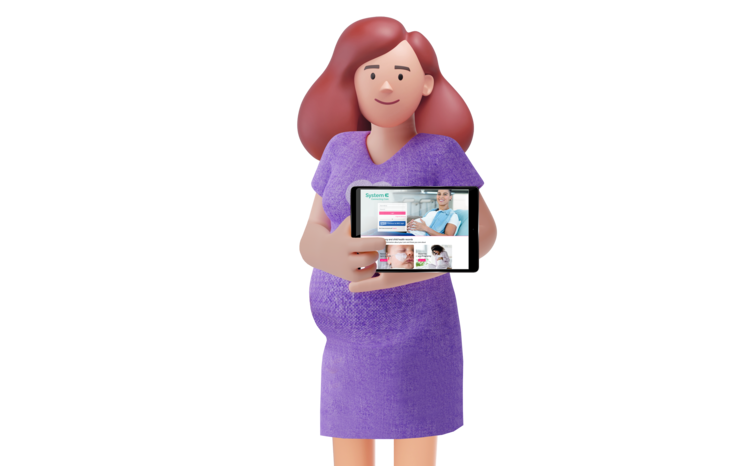Digital Health’s monthly roundup of contracts and go lives
- 9 June 2023

Digital Health’s monthly roundup of contacts and go lives features Great Ormond Street and Roche UK partnering to improve children’s care using AI, Inhealthcare working with NHS Scotland to develop remote monitoring and Lilli joining Nourish to deliver data-driven falls prevention.
Great Ormond Street and Roche UK partner to improve paediatric care using AI
Great Ormond Street Hospital for Children (GOSH) and Roche UK have partnered to co-develop digital tools aimed at identifying better ways to care for children and young people with rare and complex diseases.
Building on GOSH’s position as a leader in digital innovation in the NHS, the collaboration uses cutting-edge technologies, like artificial intelligence (AI) and machine learning, to enable better use of data that is routinely collected to improve care at GOSH and beyond.
While no patient data is shared, these new tools will allow data to be harnessed in secure and novel ways, improving clinical care and patient experience.
It will optimise the development of innovative new treatments for rare and complex diseases, helping to get them from the lab to the patient more quickly.
This first-of-a-kind collaboration aims to develop better understanding of how the NHS and pharmaceutical companies can work together to improve the lives of patients.
Inhealthcare partners with NHS Scotland to expand remote monitoring
Inhealthcare has teamed up with NHS Scotland to develop and expand remote monitoring pathways across the nation so that patients can self-manage their health needs at home safely.
A number of pathways are being developed, including blood pressure monitoring and chronic pain management. They are part of NHS Scotland’s remote monitoring programme, Connect Me.
It was announced last year that Inhealthcare had successfully bid for the NHS contract to support the scaling and mainstreaming of remote monitoring services across Scotland, using its digital health platform.
By using the remote monitoring programme, patients can reduce the amount of time they spend travelling to appointments. It also gives them added confidence in managing their own health and care.
The blood pressure monitoring service is expected to be one of the largest remote pathways from NHS Scotland. So far it has supported more than 5,700 patients.
To date, nearly 12,000 people have been supported by earlier versions of the pathway, including those that support conditions including asthma, depression, hypertension, chronic obstructive pulmonary disease and irritable bowel syndrome.
Sheffield Children’s goes live with real-time patient flow system
The solution will allow the trust to better manage patient journeys by delivering a real-time overview of capacity and needs in one consolidated view.
Each of the boards contains information such as infection control status, red to green status, expected discharge dates and various information such as respiratory support and IVs to aid clinical decision-making.
The patient flow system was developed in collaboration with System C, and is a key part of the company’s CareFlow integrated electronic patient record.
The main goal of the patient flow solution is to help improve clinical outcomes, reduce the length of hospital stays and deliver cost savings.
The Patient Flow system and digital whiteboards are the latest steps on Sheffield Children’s journey to digitise wards using System C’s integrated CareFlow EPR. Progress to date includes integrating admissions, clinical handovers, electronic observations, clinical noting, alerts and team communications.
Lilli partner with Nourish to deliver data-driven falls prevention
Lilli, a company using machine learning (ML) to revolutionise home care, has announced a partnership with digital care management provider Nourish Care to support local authorities and care providers in the successful implementation of digital social care records (DSCR) and services designed to help prevent falls and improve the overall quality, safety and personalisation of adult social care.
Lilli’s proactive, sensor-based monitoring solution working alongside Nourish’s electronic care management system will play an essential role in joining up health and care services, empowering residential and domiciliary care providers to share a wider range of real-time information across the sector.
With ambitious government mandates around digital social care requiring 80% of adult social care providers to have a DSCR solution in place by March 2024, the move will support providers in meeting this target, reducing falls and facilitating a more coordinated approach to care delivery.
The partnership represents a significant step forward for technology within the social care sector, as providers increasingly leave the paper trail behind to capture data more easily and efficiently at the point of care.
New National Treatment Centre Highland deploys Cambric’s Morse EPR
Cambric Systems, a supplier of healthcare patient data software solutions for use in secondary and community-based healthcare settings, has announced that the National Treatment Centre (NTC) Highland has deployed the Morse Electronic Patient Record (EPR).
The brand-new facility located in Inverness, which opened in April 2023 and is one of 10 treatment centres funded by the Scottish Government, will use Cambric Systems’ digital solution and interactive m-Forms capabilities to strengthen NHS Highland’s e-health programme, helping to deliver seamless multi-disciplinary patient care across the region.
NHS Highland decided to build on its long-standing partnership with Cambric to bring consistency and continuity of care to the newly launched NTC and establish a more efficient, paper-light approach to storing, accessing and updating patient records.
Staff in every discipline from recovery and consultants to general nursing staff and allied health professionals (AHPs) such as occupational and physiotherapists, rely on Morse for online access to the same patient information.
This means that patients requiring treatment from multiple disciplinary teams no longer need to repeat themselves when speaking to different specialists, which minimises patient frustration along with waiting times between appointments.




